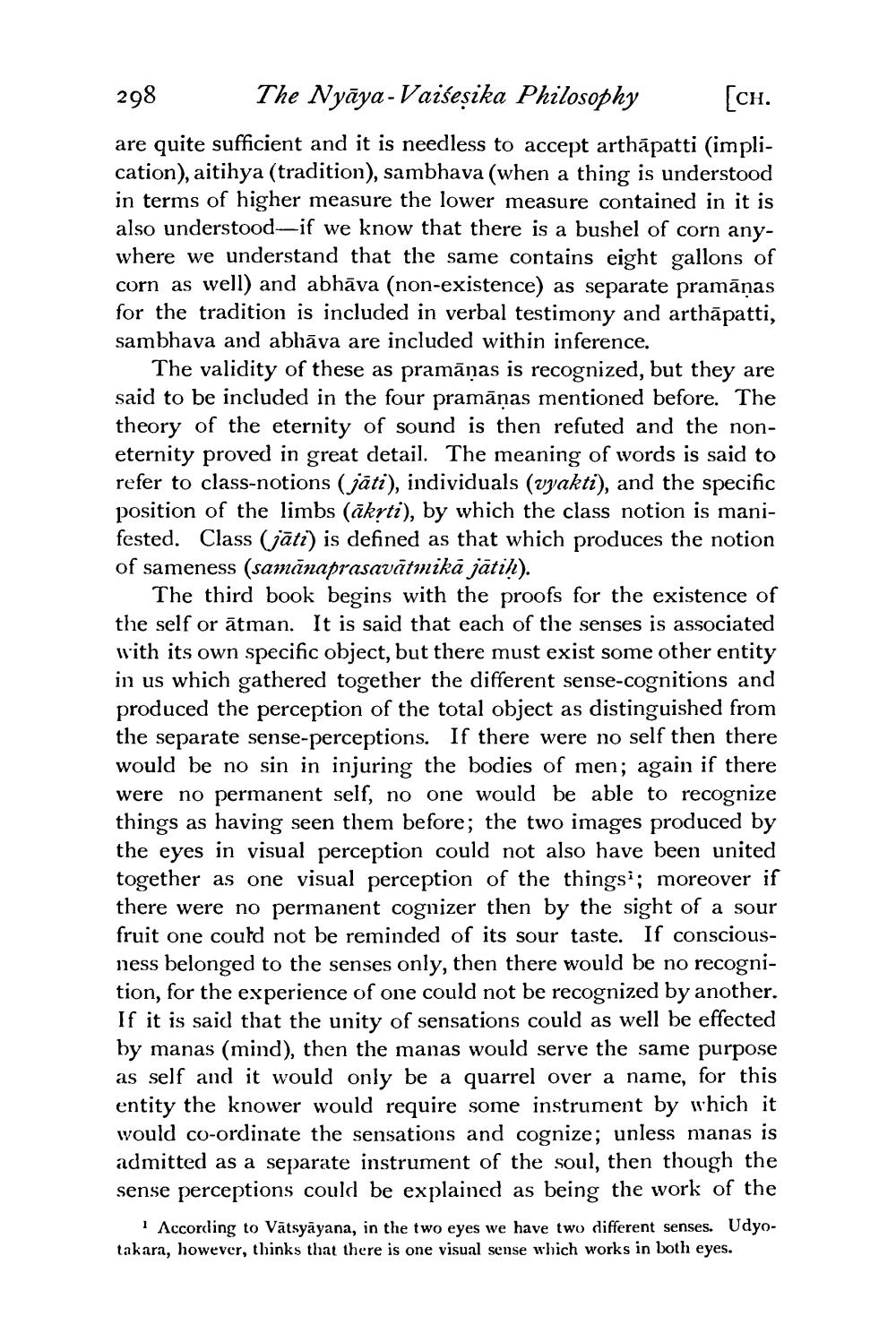________________
298
The Nyaya-Vaiseṣika Philosophy
[CH.
are quite sufficient and it is needless to accept arthāpatti (implication), aitihya (tradition), sambhava (when a thing is understood in terms of higher measure the lower measure contained in it is also understood-if we know that there is a bushel of corn anywhere we understand that the same contains eight gallons of corn as well) and abhāva (non-existence) as separate pramāņas for the tradition is included in verbal testimony and arthāpatti, sambhava and abhāva are included within inference.
The validity of these as pramāņas is recognized, but they are said to be included in the four pramāņas mentioned before. The theory of the eternity of sound is then refuted and the noneternity proved in great detail. The meaning of words is said to refer to class-notions (jāti), individuals (vyakti), and the specific position of the limbs (akṛti), by which the class notion is manifested. Class (jāti) is defined as that which produces the notion of sameness (samānaprasavātmikā jātiḥ).
The third book begins with the proofs for the existence of the self or ātman. It is said that each of the senses is associated with its own specific object, but there must exist some other entity in us which gathered together the different sense-cognitions and produced the perception of the total object as distinguished from the separate sense-perceptions. If there were no self then there would be no sin in injuring the bodies of men; again if there were no permanent self, no one would be able to recognize things as having seen them before; the two images produced by the eyes in visual perception could not also have been united together as one visual perception of the things; moreover if there were no permanent cognizer then by the sight of a sour fruit one could not be reminded of its sour taste. If consciousness belonged to the senses only, then there would be no recognition, for the experience of one could not be recognized by another. If it is said that the unity of sensations could as well be effected by manas (mind), then the manas would serve the same purpose as self and it would only be a quarrel over a name, for this entity the knower would require some instrument by which it would co-ordinate the sensations and cognize; unless manas is admitted as a separate instrument of the soul, then though the sense perceptions could be explained as being the work of the
1 According to Vätsyayana, in the two eyes we have two different senses. Udyotakara, however, thinks that there is one visual sense which works in both eyes.




